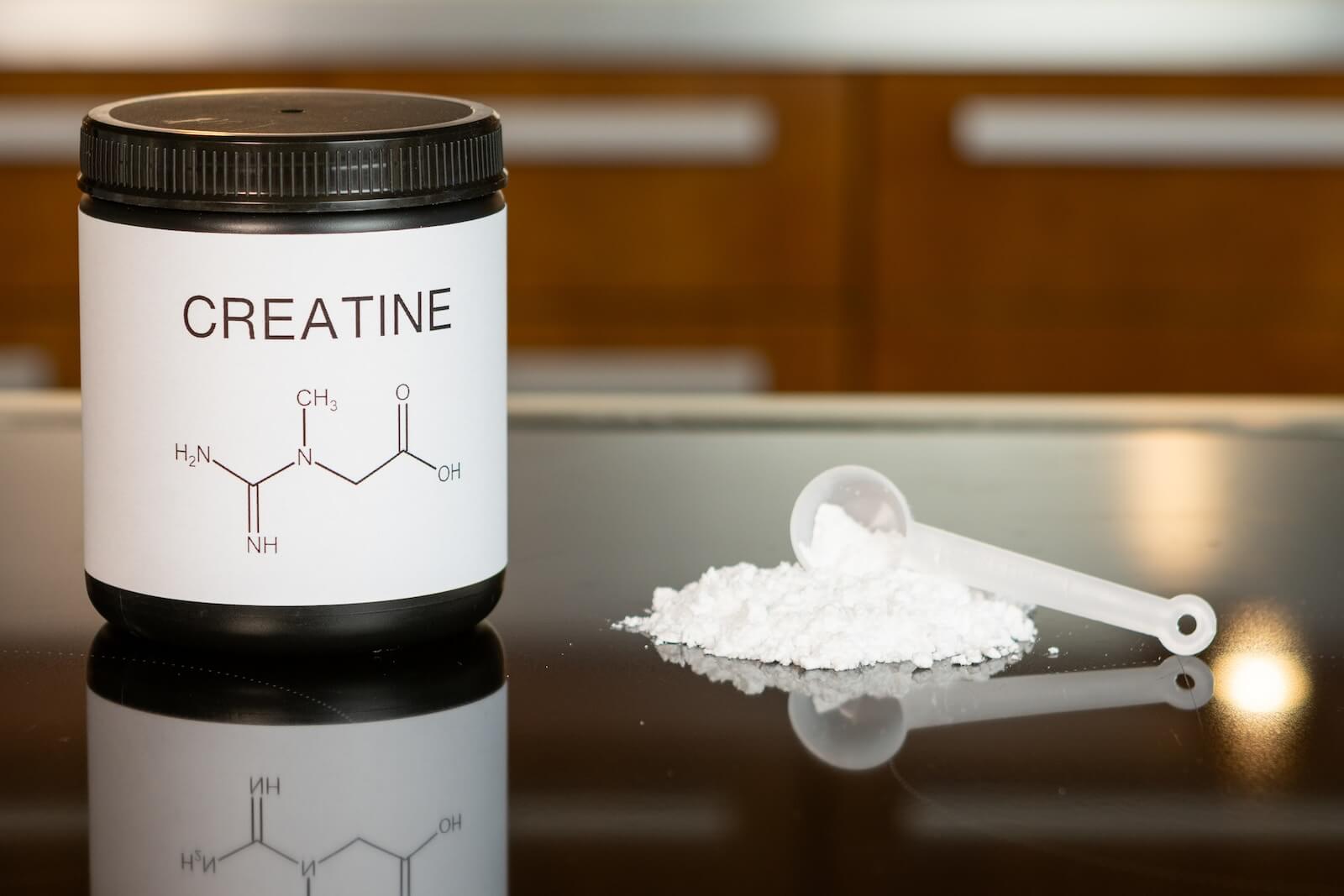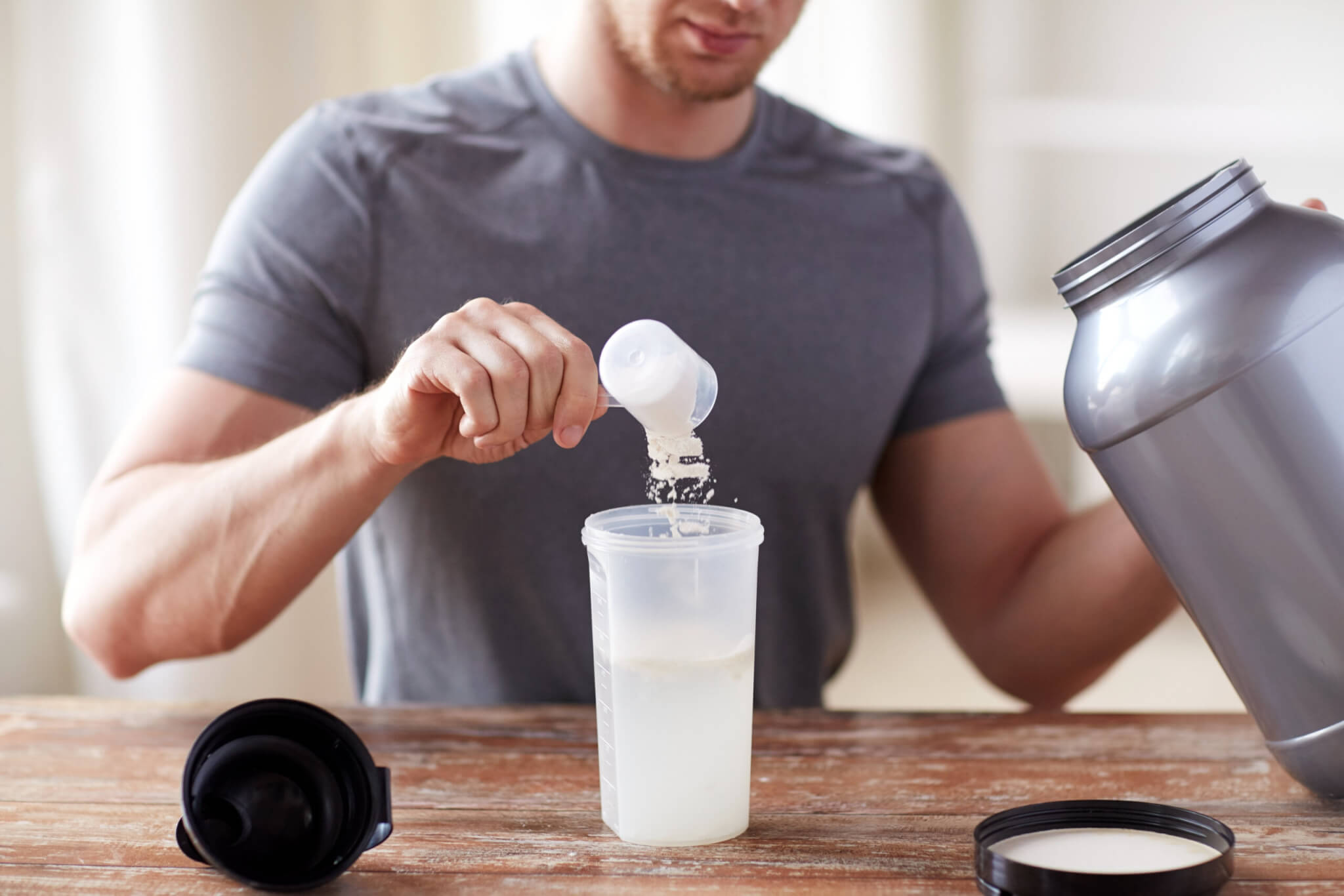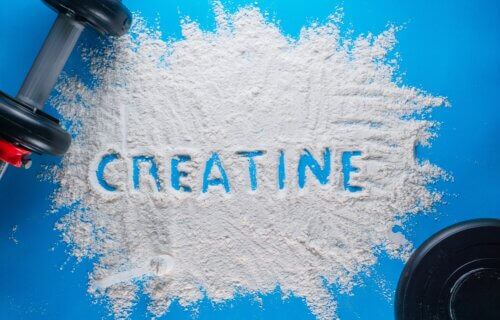For decades, creatine monohydrate has reigned supreme as a highly popular supplement among athletes and fitness enthusiasts seeking to bolster muscle growth and performance. But is this white powder truly the key to unlocking your fitness potential, or is it simply a hyped-up myth?
Here I’ll dive into the science behind creatine, exploring its potential benefits and drawbacks to help you decide if it deserves a place in your supplement regimen.
What is Creatine?
Creatine is a naturally occurring substance found in meat, eggs, and fish. It’s also made by the human body, in the liver, kidneys, and pancreas. In short, it helps to supply energy to muscles, but more so for shorter-duration, high-intensity activities, such as strength training, and less so for long-distance activities such as running or extended bouts of cardio.
By drawing water into muscle cells, creatine can help you work harder in the gym. This, of course, can then result in increased muscle mass. Because of the water-drawing effect, some people do experience water retention, or bloating, while supplementing with creatine. The water weight will go away upon stopping usage, and along with it potentially some of your size and strength.

Typical Usage and Dosing
General recommendations are to cycle on and off creatine, which may be useful because like other supplements the body will adapt, and returns will diminish over time. Many people will start with a “loading phase” to saturate the muscles. During this phase, people ingest 3-5 grams of creatine up to four times per day for five days. After this phase, they’ll drop to the maintenance dosage of 3-5 grams per day.
People have reportedly used up to 25 grams per day for 14 days safely, as well as lower doses of 4-5 grams for up to 18 months. Doses of up to 10 grams per day have been used safely for up to five years as well. But keep in mind that in addition to bloat you may also experience dehydration and muscle cramps, though unlikely.
As with all supplements, there’s no way to know in advance how your body will respond to creatine supplementation.
Can’t I Just Get My Creatine from Food?
Yes, you can get creatine from food, but it may not be enough to have the same muscle and strength-building effects as supplementing with it. Why? To get the same amounts and same effects from food, you may need to consume more red meat, eggs, and fish than your diet calls for. It’s also hard to know how much creatine is cooked off when you prepare your food.
You can likely get a standard dose of 3-5 grams daily from food, but this may not be enough to enhance exercise performance. To put things in perspective, you’d need to consume roughly two pounds of beef or three pounds of chicken daily to get five grams. And let’s not forget what it would cost to consume that amount of meat on a regular basis. This may be the rare instance where supplementing saves money.
What Creatine Won’t Do
Creatine is not a stimulant, so if you’re looking for a product to get you going for a workout, you’ll want to look at pre-workout supplements. However, many of those supplements will contain some form of creatine in addition to caffeine, taurine, and a host of other substances, assuming it’s not a stimulant-free product.
Creatine is also not a magic pill; it will not make results come easier. Yes, it may allow you to work harder and longer in the gym, but your effort is the main determiner of results. Taking creatine will not guarantee that you end up with a magazine-cover look.

Final Thoughts: Is Creatine Monohydrate Worth Taking?
Creatine Monohydrate is well studied and proven to be safe, and most people supplementing with it will not experience any side effects. If, and how much it helps you, will depend on many factors. How long have you been exercising? What type of exercise do you do? Do you eat a healthy diet? Do you get enough sleep? Are you training and recovering properly?
As you can see, there are multitude of factors that play into reaching fitness goals. Creatine can aid you in reaching goals, but there’s still no free ride.
Many professionals in the fitness industry recommend building a base before adding supplements other than protein powder unless you’re consuming enough protein from your diet alone. Building a base means reaching your genetic potential before supplementing. It means building and learning about your body for years before you add supplements. I side with this camp, but it’s also not wrong for newbies to try creatine.
Deciding to supplement with creatine is a personal choice. To answer whether creatine is worth taking? Yes, if you’re looking to boost results. It’s worth trying if you’re looking to build size and strength, and even if you’re cutting calories and trying to maintain as much strength as possible while in a calorie deficit. It’s one of the few supplements that is well-studied and proven to be safe and effective, all rare qualities when it comes to supplements and the supplement industry.
If you have a question you’d like answered by personal trainer Joe Vitiello, click here to submit it for a potential future article.
You may also be interested in:
- Is Creatine Worth Adding To Your Workout Routine?
- Best Foods for Protein
- Which Whey Protein Powder Is Really Best For Your Body?
